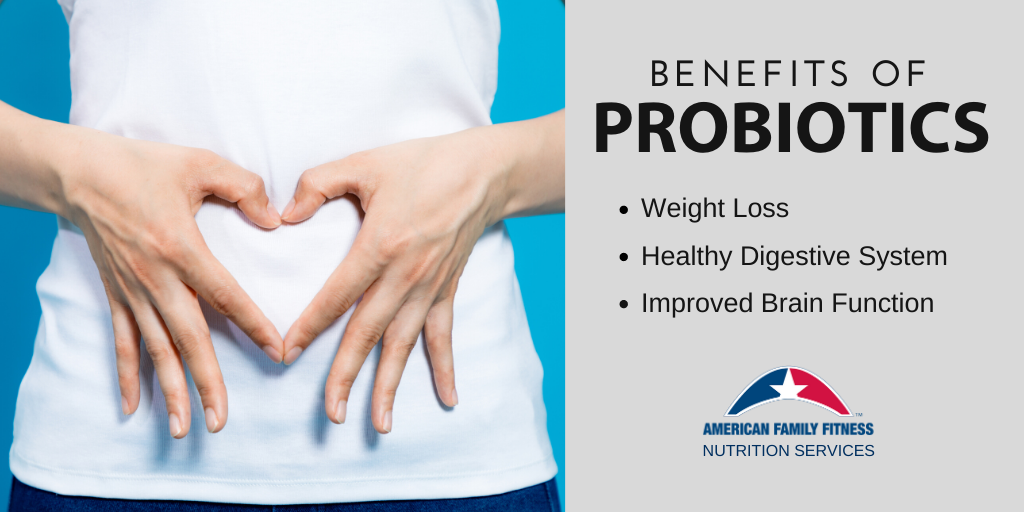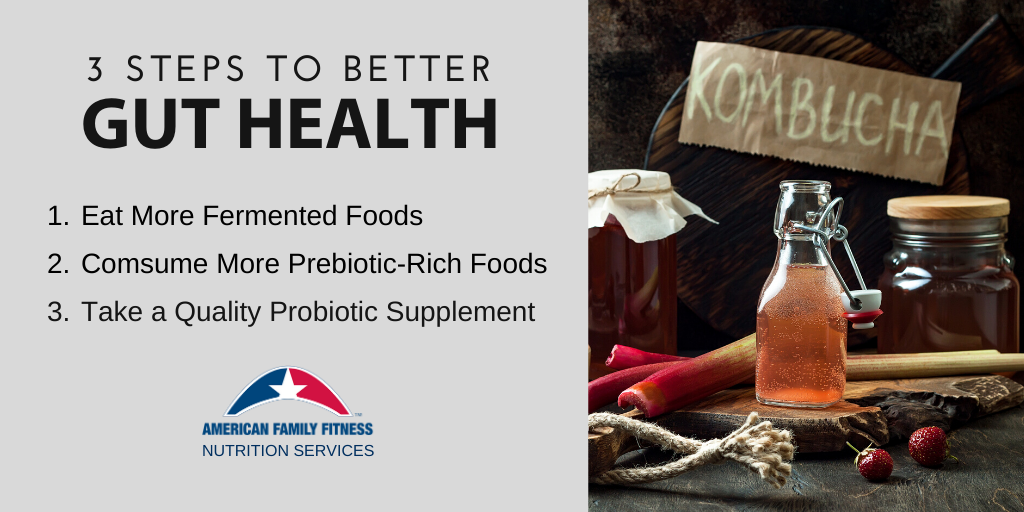
How to Use Water to Reduce Stress and Soothe Your Mind
Research has shown that exercising in the water can reduce stress on our joints. But water can also relieve stress from another very important part
February 26, 2020

Question: I hear about gut health and the microbiome. Can you explain what it is and how it impacts health?
Answer:
The microbiome is the collective name for all the bacteria and microorganisms living in your body. They live all over our body; however, a big concentration resides in our gut. Some types of bacteria can be harmful, but there are many that actually protect you and benefit your health. They help us to breakdown food, program our immune system, and even prevent certain diseases.
When we improve the health of our microbiome, it positively affects the rest of our body including the health of our gut, our brain, and potentially may aid in losing weight. Within the past decade, modern science has just begun to discover all the ways that a healthy gut microbiome can influence many different areas of our health, including your weight, digestive, and mental health.

The amount, type, and variety of healthy bacteria is attributed to our diet, genetics, and our early microbial exposure. Since we can’t change the latter two, diet plays an important role in improving our gut microbiome, and furthermore our overall health. There are three primary ways to improve and support a healthy microbiome.

The bottom line is that eating more foods that contain probiotics and fiber offers a wide range of health benefits no matter what your health goal is. It’s important to keep in mind that doing this is just one piece of a healthy lifestyle, along with an overall healthy diet, regular physical activity, sufficient sleep, and manageable stress.
Sincerely,
Marlee Shepherd, RD
If you have nutrition topics you would like to see in Dietitian’s Discussion, please email your questions and ideas to our registered dietitians at nutritionservices@amfamfit.com.

Marlee Shepherd,
Registered Dietitian at:
American Family Fitness Midlothian
American Family Fitness Swift Creek
Marlee Shepherd is the Registered Dietitian at the Midlothian and Swift Creek American Family Fitness locations. She earned her Bachelor of Science in Dietetics from James Madison University. Marlee completed her dietetic internship with Virginia State University and gained her Registered Dietitian credentials in 2019.
During her internship, Marlee enjoyed all aspects of nutrition, especially nutrition counseling because it helps people gain confidence in their food choices and develop a healthy relationship with food and their bodies. Marlee finds it exciting to be part of the growing and ever-changing nutrition field, and she loves staying current by reading the latest nutrition research and fads. Her areas of specialty include intuitive eating, diabetes, weight loss, and plant-based diets.
When Marlee is not working, she enjoys hiking around the James River, trying new recipes, reading, and travel. She’s lived in Australia and has a passion for Spain. She plans one day to head to Tokyo.
Nutrition appointments with Marlee are available at the American Family Fitness Midlothian and Swift Creek locations. To schedule an appointment, stop by the Welcome desk or email her directly at mshepherd@amfamfit.com. She is looking forward to working with you!
Citations:

Research has shown that exercising in the water can reduce stress on our joints. But water can also relieve stress from another very important part

Ever been so stressed that you told yourself, I need to start meditating. Well, now’s the time! (And just in time for National Stress Awareness Month

Raise your hand if you’re feeling: TiredStressedUnsure of yourselfPowerlessAnxious Now, shift your attention to your breath (you can lower your hand now). Without altering your
Article contributed by Pam Speich
Pam Speich is a Registered Dietitian who graduated from Carson Newman College with a Bachelor of Science Degree with Honors in Foods and Nutrition with an Emphasis in Dietetics. She completed her Dietetic Internship at Vanderbilt University Medical Center and earned the credentials of Registered Dietitian in 2000. In March 2018, Pam became a certified personal trainer. Pam’s experience includes nutrition counseling, wellness program development, public speaking, wellness research and writing, sales and marketing, and food labeling. Her areas of nutrition specialty include weight loss, heart-healthy diets, diabetes, celiac disease, food allergies and intolerances, and low thyroid conditions. What Pam loves most about being a dietitian is the opportunity to witness lives changed for the better through the power of food.
Stay connected with us through our monthly newsletter to get the latest news, updates, fitness tips and more.